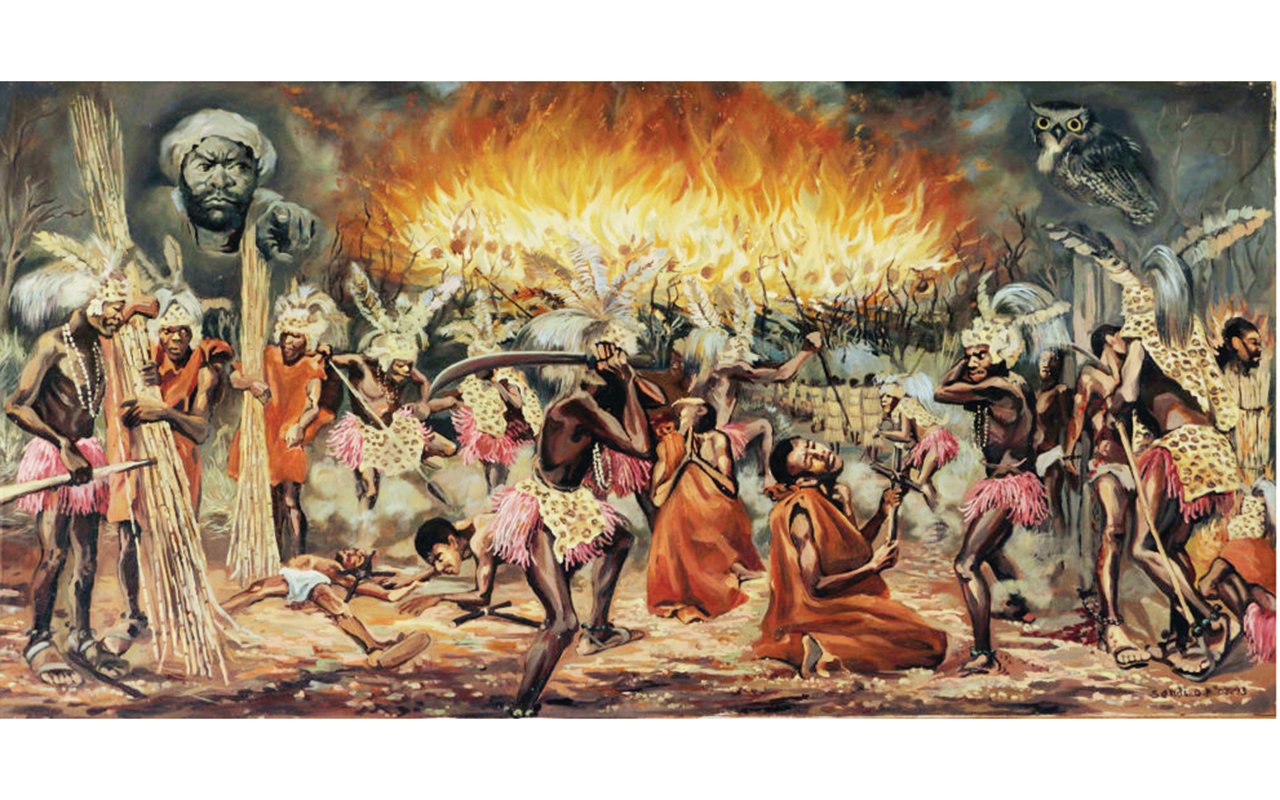
An illustration of the persecution of the Uganda Martyrs. PHOTO/NET
Tertullian, a Christian apologetic, is associated with the dictum: “The blood of the martyrs is the seed of the church”. It means that the Christians’ willingness to die for their faith leads to the conversion of others. Uganda subscribes to the dictum, more so, from the leadership aspect.
The role of a leader, in general, is to manage, guide, and inspire others. The holy scriptures describe good leadership as God-fearing and people-centred. In summary, good leaders are exemplary.
Political leadership is crucial to every society. Politics is described as the science or art of managing society through the formulation and application of policy, for peaceful coexistence and cooperation among peoples, as well as for the protection of the environment.
Patriotism is described as the love shown in loyalty to one’s country. Since no human society is perfect, patriotism must be scrutinised and converted by the gospel principles, of agape love, justice and peace for all.
Africa is famous for its abundant natural resources, yet it remains the poorest and most underdeveloped. This state of affairs is majorly blamed on unpatriotic leadership; glaringly manifested in misappropriation of state funds, at the expense of human development. The citizens are not inspired to be patriotic.
In Uganda, the word corruption has become “vernacularised”. Some of the leaders employ state machinery to maltreat citizens who do not subscribe to the leaders’ way of thinking or doing things. These leaders are preoccupied with how to win the next election, by spending huge sums of money.
As we celebrate 60 years since the canonisation of the Martyrs of Uganda, we do well to single out Saints Joseph Balikuddembe Mukasa and Charles Lwanga, as exemplary patriotic leaders. They personify the message: “truth talking to power”.
Martyr (Greek) signifies a witness who testifies to a fact of which he knows from personal observation. Jesus formed a band of disciples and commissioned them to be witnesses of His life and teaching (Acts 1:8). He, however, forewarned them of persecution and death on account of this mission. St Stephen was the first Christian martyr (Acts 7:54-60).
Christian missionaries into Buganda Kingdom were invited by Kabaka Muteesa I, in 1875. Having been impressed by the witness of Henry Morton Stanley, the king hoped that it would be beneficial to his people and his leadership. At the time of arrival of the missionaries, Mukasa Balikuddembe was already serving as the personal attendant of the king. When he embraced Christianity and baptised Joseph, in 1882, Balikuddembe was made lay Christian leader and catechist.
King Mwanga II succeeded Muteesa I, and retained Balikuddembe as a chief steward of the royal court. Balikuddembe endeavoured to protect the pages from the king’s pagan practices. One outstanding occasion was when Baliddembe reproached the king over the murder of Bishop Harrington, whom he had suspected of being an enemy of the kingdom. The king sought an occasion to kill Balikuddembe too.
Lwanga succeeded Balikuddembe as head of Protestants and Catholics. Before joining the royal pages, he had been trained to become a priest to deity Mukasa. It was Balikuddembe who assisted his conversion and was baptized Charles. Lwanga encouraged, guided, directed and often reminded both Protestants and Catholics to get prepared to die for Christ.
When the Christians were condemned to death, on May 26, 1886, Lwanga took the lead.
“What one knows to be true one would not deny.” he said to the king. At his death, Lwanga cried out loudly, ‘Katonda wange!’ (My God). Paradoxically, Christians who survived the holocaust gained more of Lwanga’s determination and trust in God. Even Kabaka Mwanga is said to have converted to Christianity.
Evidently, the martyrs’ blood was set to transform Buganda kingdom and beyond. It is, hence, great cause for concern over the pathetic reversal of this process. Today’s political leaders must move away from the notion of “strong man” rule and strengthen institutions which serve as the axis for contemporary democracy and development. Let the pilgrimage to Namugongo, be an occasion to rekindle the legacy of Saints Joseph Mukasa Balikuddembe and Charles Lwanga.
Death of martyrs
When the Christians were condemned to death, on May 26, 1886, Lwanga took the lead.
“What one knows to be true one would not deny.” he said to the king. At his death, Lwanga cried out loudly, ‘Katonda wange!’ (My God). Paradoxically, Christians who survived the holocaust gained more of Lwanga’s determination and trust in God. Even Kabaka Mwanga is said to have converted to Christianity.


